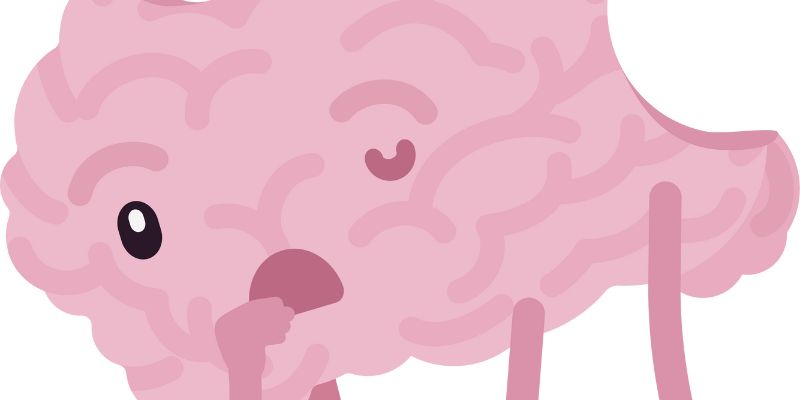How Exercise Can Help Boost Your Memory: A Complete Understanding
Oct 09, 2024 By Martina Wlison
Most people praise exercise for maintaining our bodies in shape. Did you realize it also helps your brain function wonderfully? Physical exercise directly affects memory and mental clarity, whether your activity is yoga, weight lifting, or park running. Maintaining a keen memory is particularly crucial in today's fast-paced world when we depend on our capacity for quick knowledge recall.
Science has shown regular exercise to increase brainpower rather than only make one feel more energetic. The advantages are amazing, from lowering stress to encouraging the development of fresh brain cells. Adding more activity into your daily life could be the secret to releasing a stronger, healthier mind if you have ever felt forgetful or battled to focus. This guide will review how various forms of exercise could boost memory and why long-term brain health depends on constant activity.

How Exercise Affects the Brain?
Workout significantly influences the brain and makes a difference in making strides in cognitive capacity and memory. Physical activity affects several important brain processes, including aerobic exercises, strength building, and moderate stretching. It increases blood flow to the brain, aids in developing fresh brain cells, and helps reduce stress. Let us discuss several ways in which exercise affects the brain.
Increases Blood Flow to the Brain
The increased blood flow is one of the focal points of the workout. Your heart pumps more blood when you work out, giving crucial oxygen and supplements to the bodyincluding the brain. This oxygen flood improves brain performance generally, memory, focus, and attention span. Particularly responsive to more blood flow is the hippocampal memory area of the brain. More oxygen and nutrients enable the brain to function at its best, enhancing memory and learning ability. Regular exercise helps maintain this essential mechanism, supporting long-term brain function.
Stimulates the Growth of New Brain Cells
One natural activator of neurogenesisthe process by which fresh brain cells growis exercise. It is particularly true in the hippocampal region, which is vital for learning and memory. Older people's slowing down the creation of these brain cells might cause memory issues. However, consistent physical exercise helps new neurons sprout, therefore countering this. It helps retain memory capacity over time. Those who stay physically dynamic all their lives have less cognitive decrease, protecting their memory and sharpness of intellect.
Reduces Stress and Anxiety
Major disturbs of memory and cognitive ability include stress and anxiety. Particularly in the hippocampal region, which causes memory problems and poor concentration, and high degrees of stress can destroy brain cells. One organic way to fight this is through exercise. Endorphinsfeel-good chemicals in the brain that lower stress and boost moodare released when physically active. Better memory retention and enhanced focus follow from lower stress levels. Regular exercise will help you to greatly lower stress, increase brain clarity, and increase general memory capacity.

Improves Sleep Quality
Memory consolidationturning transient memories into long-term storage depends on quality sleep. This process is disrupted without enough sleep, which causes other cognitive problems, including forgetting. Exercise can greatly enhance sleep quality, facilitating brain performance of this essential function. Physical activity guarantees that your brain has the necessary time to integrate memories by helping you fall asleep faster and reach deeper sleep. It thus helps improve your memory of facts and keep mental clarity throughout the day.
Types of Exercise That Benefit Memory
Various forms of exercise have special effects on memory enhancement and brain function. Every type of physical activity helps in different ways, whether increasing blood flow to the brain or encouraging the development of new brain cells. Let's look at how every exercise could boost your cognitive skills and memory.
Aerobic Exercise
Aerobic exercise is among the most powerful physical activity for increasing memory. Running, swimming, and cycling enhance your heart rate, increasing blood flow to the brain. This additional oxygen and nutrient delivery enhances cognitive ability, particularly in areas linked to memory, like the hippocampal. Regular aerobic exercise has been found in studies to boost hippocampal growth, enhancing learning and memory. Regular aerobic exercise participants often have improved recall and mental clarity than those leading a sedentary lifestyle.
Strength Training
Strength traininglifting weights and resistance exercisescan help develop muscle and stimulate the brain. This activity stimulates the release of crucial growth factors that support brain cell formation and upkeep. Strength training also supports neuroplasticitythe brain's capacity to create new connectionsnecessary for learning and memory. Better cognitive ability and memory retention have been connected to consistent resistance training. Although aerobic exercise gets more attention for brain function, strength training is as important.
Mind-Body Exercises
Yoga and tai chi are mind-body activities with special advantages since they mix physical movement with awareness. These techniques include stress-controlled breathing, stretching, and meditation, which assist in reducing stress and improving cognitive ability. Protecting the brain depends on lowering stress since high degrees of anxiety might compromise memory capacity. Mind-body exercises help increase mental clarity and focus, therefore facilitating material memory. Stress reduction and mindfulness can support mental and enthusiastic well-being, improving memory.
High-Intensity Interval Training (HIIT)
Short bursts of intensive exercise followed by quick rests define High-Intensity Interval Training (HIIT). This exercise increases brain-derived neurotrophic factor (BDNF), a protein essential for neurons' survival and expansion. Increased memory and cognitive ability have been connected to higher degrees of BDNF. HIIT exercises also help cardiovascular health, supporting greater brain function. HIIT workouts are brief for people trying to increase mental and physical fitness, yet their effects on brain function and memory can be major.
Conclusion:
Regular exercise keeps you physically fit and significantly improves your brain function and memory, addressing many aspects of your life. The mental advantages are great, from increasing blood flow to the brain, promoting fresh brain cell development, and lowering stress to enhancing sleep quality. Various kinds of exerciseaerobic activity, strength training, mind-body exercises, and HIITeach have special benefits for improving memory. Physical activity helps you invest in your long-term cognitive health and gives your brain the necessary tools to operate optimally.







